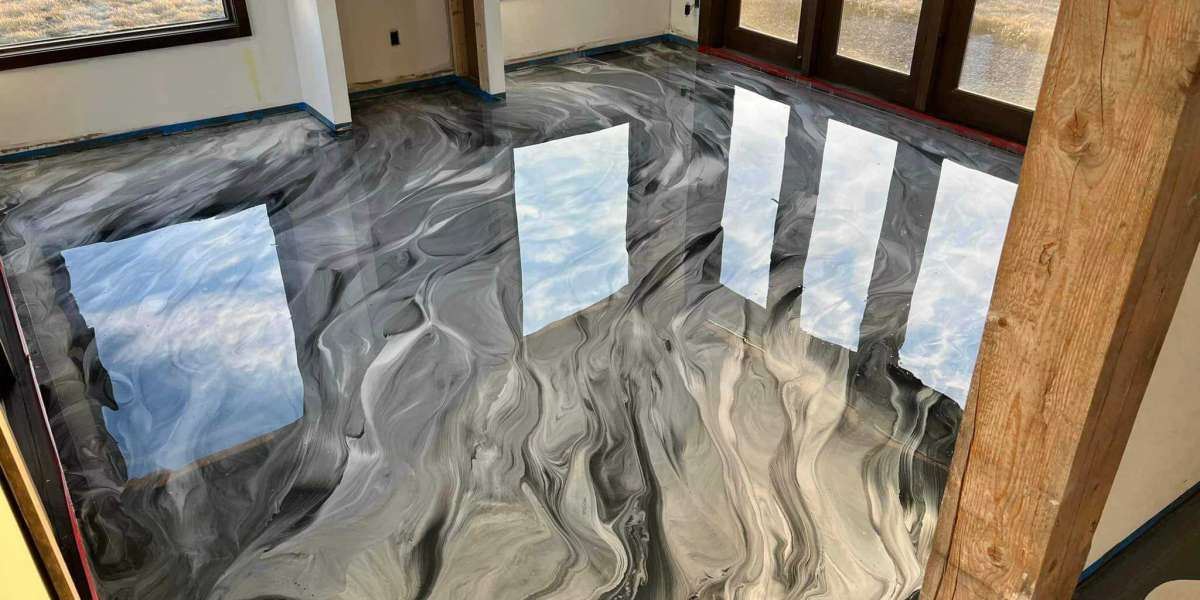When it comes to installing high-performance, long-lasting floors, epoxy resin is the cornerstone of the entire system. Whether you're a professional contractor or a DIY enthusiast, understanding the role of epoxy resin and the supplies that support it is essential for a successful flooring project.
What Is Epoxy Resin?
epoxy resin is a two-part thermosetting polymer made by combining a liquid resin with a hardening agent (or curing agent). When mixed, these components undergo a chemical reaction that forms a solid, highly adhesive plastic material that bonds strongly to concrete and other surfaces.
In flooring applications, epoxy resin serves as both a protective layer and a decorative finish, offering unmatched durability, chemical resistance, and visual appeal.
Why Epoxy Resin Is Crucial in Flooring
✅ Adhesion: Forms a tight bond with concrete substrates.
✅ Strength: Creates a tough, resilient surface capable of withstanding heavy loads.
✅ Chemical Resistance: Repels oil, chemicals, cleaners, and more.
✅ Aesthetic Flexibility: Can be tinted, textured, or layered with effects like flakes or metallics.
✅ Waterproofing: Creates a seamless barrier against moisture.
Types of Epoxy Resin for Floors
1. 100% Solids Epoxy
Pure epoxy with no solvents or water.
Very durable, ideal for industrial floors.
Short working time; requires fast and skilled application.
2. Water-Based Epoxy
Easier to apply and more user-friendly.
Less odor and VOC emissions.
Not as thick or durable as 100% solids.
3. Solvent-Based Epoxy
Contains solvents for easier flow and leveling.
Stronger adhesion than water-based but produces VOCs.
Requires proper ventilation during application.
Essential Epoxy Floor Supplies
To effectively install epoxy resin flooring, you'll need the following supplies:
✔️ Epoxy Resin Hardener
Choose the appropriate type for your project (garage, warehouse, kitchen, etc.).
✔️ Concrete Primer
Aids in bonding epoxy resin to concrete and helps prevent bubbles.
✔️ Topcoat or Sealant
Adds UV protection, gloss, and wear resistance.
✔️ Color Pigments
Tint your epoxy resin with solid colors or metallic powders.
✔️ Decorative Flakes or Quartz Sand
For texture, anti-slip properties, and custom design.
Application Tools
Mixing Drill with Paddle Attachment – For blending resin and hardener thoroughly.
Notched Squeegee – For even resin spreading.
Epoxy Rollers (Lint-Free) – For smooth application of primer and topcoat.
Spike Shoes – Walk on wet epoxy without leaving footprints.
Protective Gear – Gloves, goggles, and a respirator are a must.
Where to Buy Epoxy Resin and Supplies
High-quality epoxy resin and supplies can be sourced from:
Epoxy specialty stores (e.g., EpoxyMaster, ArmorPoxy, EpoxyETC)
Industrial suppliers (e.g., Sherwin-Williams, Rust-Oleum Industrial)
Online marketplaces (Amazon, eBay, or supplier direct websites)
Construction supply distributors in your region
Tips for Using Epoxy Resin
Measure Carefully: Always mix resin and hardener in the correct ratio.
Work Quickly: Once mixed, epoxy starts curing within minutes.
Avoid Humidity: High moisture can cause curing issues or surface defects.
Mix Thoroughly: Incomplete mixing results in soft or tacky spots.
Conclusion
Epoxy resin is the foundation of epoxy flooring systems, offering unmatched performance and customization options. With the right supplies—resins, additives, primers, tools, and safety gear—you can achieve a professional-grade floor that is both beautiful and built to last. Whether it's a garage, retail space, or industrial facility, epoxy resin delivers durability and design flexibility that other flooring systems simply can’t match.




